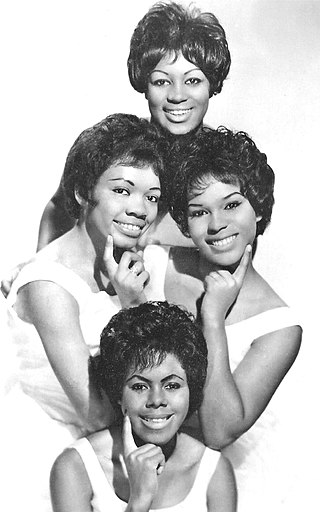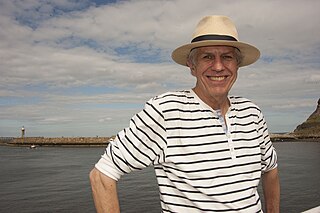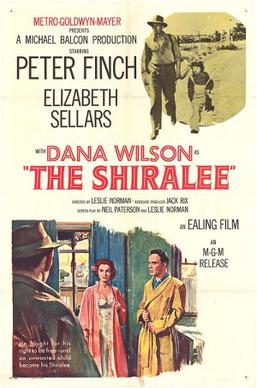Related Research Articles

The Shirelles were an American girl group formed in Passaic, New Jersey in 1957. They consisted of schoolmates Shirley Owens, Doris Coley, Addie "Micki" Harris, and Beverly Lee.

Music hall is a type of British theatrical entertainment that was most popular from the early Victorian era, beginning around 1850, through the Great War. It faded away after 1918 as the halls rebranded their entertainment as variety. Perceptions of a distinction in Britain between bold and scandalous music hall entertainment and subsequent, more respectable variety entertainment differ. Music hall involved a mixture of popular songs, comedy, speciality acts, and variety entertainment. The term is derived from a type of theatre or venue in which such entertainment took place. In North America vaudeville was in some ways analogous to British music hall, featuring rousing songs and comic acts.

John Michael Kirkpatrick is an English musician, playing free reed instruments such as the accordion and concertina and performing English folk songs and tunes.

Matilda Alice Powles, Lady de Frece was an English music hall performer. She adopted the stage name Vesta Tilley and became one of the best-known male impersonators of her era. Her career lasted from 1869 until 1920. Starting in provincial theatres with her father as manager, she performed her first season in London in 1874. She typically performed as a dandy or fop, also playing other roles. She found additional success as a principal boy in pantomime.

The Shiralee is a 1957 British film directed by Leslie Norman and starring Peter Finch. It is in the Australian Western genre, based on the 1955 novel by D'Arcy Niland. It was made by Ealing Studios, and although all exterior scenes were filmed in Sydney, Scone and Binnaway, New South Wales and Australian actors Charles Tingwell, Bill Kerr and Ed Devereaux played in supporting roles, the film is really a British film made in Australia, rather than an Australian film.
Isleworth Studios is the common name of two former film studios in Great Britain.

Accused is a 1936 British mystery film directed by Thornton Freeland and starring Douglas Fairbanks, Jr., Dolores del Río and Florence Desmond. It was made at Isleworth Studios by the independent Criterion Films, which Fairbanks was a co-owner of. The film's sets were designed by Edward Carrick.

After the Ball is a 1957 British biographical film directed by Compton Bennett and starring Pat Kirkwood, Laurence Harvey and Jerry Stovin. It portrays the life of the stage performer Vesta Tilley. It was made at Beaconsfield Studios with sets designed by the art director Norman G. Arnold.
Motherland is a 1927 British silent war film directed by G. B. Samuelson and starring Rex Davis, Eva Moore and James Knight. The film was made at Isleworth Studios. It is set during the First World War. It aimed to copy the success of the series of war films released by British Instructional Films, but critical reaction was negative.
Nursie! Nursie! is a 1916 British silent comedy film directed by Alexander Butler and starring James W. Tate, Clarice Mayne and Bernard Vaughan. It was made at Isleworth Studios.
A Pair of Spectacles is a 1916 British silent comedy film directed by Alexander Butler and starring John Hare, Peggy Hyland and Booth Conway, based on the play of the same name by Sydney Grundy. It was made at Isleworth Studios.
A Cinema Girl's Romance is a 1915 British silent drama film directed by George Pearson and starring Agnes Glynne, Fred Paul and Alice De Winton. It was based on a novel by Ladbroke Black. The film was made at Isleworth Studios.
The Cost of Beauty is a 1924 British silent romance film directed by Walter Summers and starring Betty Ross Clarke, Lewis Dayton and James Lindsay. It was made at Isleworth Studios.
Afterglow is a 1923 British silent drama film directed by G. B. Samuelson and Walter Summers and starring Lillian Hall-Davis, Fred Hearne and James Lindsay. It was made at Isleworth Studios.
A Couple of Down and Outs is a 1923 British silent drama film directed by Walter Summers and starring Edna Best, Rex Davis and George Foley.
The Honeypot is a 1920 British silent romance film directed by Fred LeRoy Granville and starring Peggy Hyland, Campbell Gullan and James Lindsay. It was made at Isleworth Studios. A sequel Love Maggy was released the following year.
Love Maggy is a 1921 British silent drama film directed by Fred LeRoy Granville and starring Peggy Hyland, Campbell Gullan and James Lindsay. It was made at Isleworth Studios as a sequel to the 1920 film The Honeypot.
The Broken Rosary is a 1934 British musical film directed by Harry Hughes and starring Derek Oldham, Margaret Yarde and Vesta Victoria. It was made at Isleworth Studios.
A Temporary Gentleman is a 1920 British silent comedy film directed by Fred W. Durrant and starring Owen Nares, Madge Titheradge and Alfred Drayton. It was shot at Isleworth Studios.
All the Winners is a 1920 British silent sports film directed by Geoffrey Malins and starring Owen Nares, Maudie Dunham and Sam Livesey. It is set in the horse racing world.
References
- ↑ Harris p.201